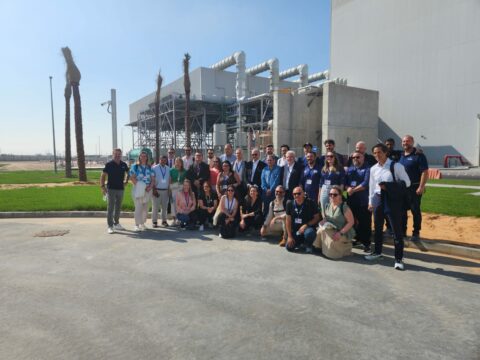BD Energy
Renewing Employment Through Renewable Energy
In a country with an almost 35 per cent unemployment rate, the transition to renewable energy means that this sector is “beautifully positioned to help people get jobs,” says Candice Seggie, head of people operations at SolarAfrica Energy.
In fact, a 2019 study by the Council for Scientific and Industrial Research and the Institute for Advanced Sustainability Studies estimated that the growth of this sector would create up to 1.6 million jobs by 2050.
Types of jobs
The International Labour Organisation (ILO) says jobs can be created directly and indirectly along the entire value chain of renewable energy. This includes the manufacturing and distribution of equipment; the production of inputs such as chemicals; and project management, installation, operation and maintenance. While some jobs will be lost in the transition to cleaner energy systems, the ILO says these losses will be outweighed by the new employment opportunities in the sector.
The good news is that these jobs will require a range of qualifications and skills, from engineering jobs to design the systems, to technical positions like electrical tradesmen to install and manage sites, to semi-skilled labour, according to Warren Winchester, Impact Farming product manager for Fedgroup.
SolarAfrica, which specialises in solar finance through power purchase agreements, is an example of a company in the renewable sector reporting dynamic growth, doubling in size last year. “As licence agreements change and more consumers opt for renewable energy supply, we are seeing positions developing and a rising need for new skills,” says Seggie. There’s been a growing demand for people with electrical skills, for example. “There wasn’t much depth at first, but now everyone has three to five years’ solar experience. As there are so many skill levels, there really is something for everyone.”
Winchester agrees. “The industry is looking for people with electrical engineering degrees, as well as tradesmen who are proficient in building and maintaining electrical circuits.”
Tender administration is another emerging career stream, notes Seggie, especially as the licence exemption threshold for self-generation has been lifted from 1MW to 100MW.
Equal opportunities
George Asamani of the Project Management Institute (PMI) says project management has shown considerable growth as a career path in the renewable energy space. “PMI believes that the future of work is project-based, and teams will deliver on values and strategic objectives. Careers will increasingly revolve around a portfolio of projects rather than a bulleted list of static job responsibilities.”
PMI’s Talent Gap 2021 Report predicts a global need for 25 million new project professionals with management-oriented skills by 2030, meaning 2.3 million project managers will be needed to fill project management roles every year to keep up with the demand.
Many of these roles will be filled by women. “We are seeing more women come into the industry, specifically female engineers,” notes Seggie. “Although not yet in the volumes we would want, we are also seeing more women technicians, not to mention more women qualifying as electricians.”
Winchester adds that half the engineers at the solar company Fedgroup partners with for Impact Farming’s solar sites are women.
As green power purchase agreements are usually signed for 10-20 years, renewable energy guarantees “sheltered employment”, says Seggie. People will always be needed to clean and maintain renewable energy assets. As the sector expands, there is a need for analysts, product specialists, financial experts and technicians. “There are also so many add-ons in solar applications that we need people with product knowledge and who are able to work on new technology.”
Winchester says that while engineers require a university qualification and tradesmen should have a diploma, on-the-job training as an intern is vital. The South African Photovoltaic Industry Association offers training for the PV GreenCard assessment, which is needed to become a certified installer. Finally, the South African Renewable Energy Technology Centre provides industry-related and accredited training across the sector.
And while technical knowledge is important, so too are soft skills.
“Punctuality, communication and an innate interest in renewable energy trends are among the desired soft skills needed in this field,” concludes Seggie.






 Sign-up and receive the Business Media MAGS newsletter OR SA Mining newsletter straight to your inbox.
Sign-up and receive the Business Media MAGS newsletter OR SA Mining newsletter straight to your inbox.